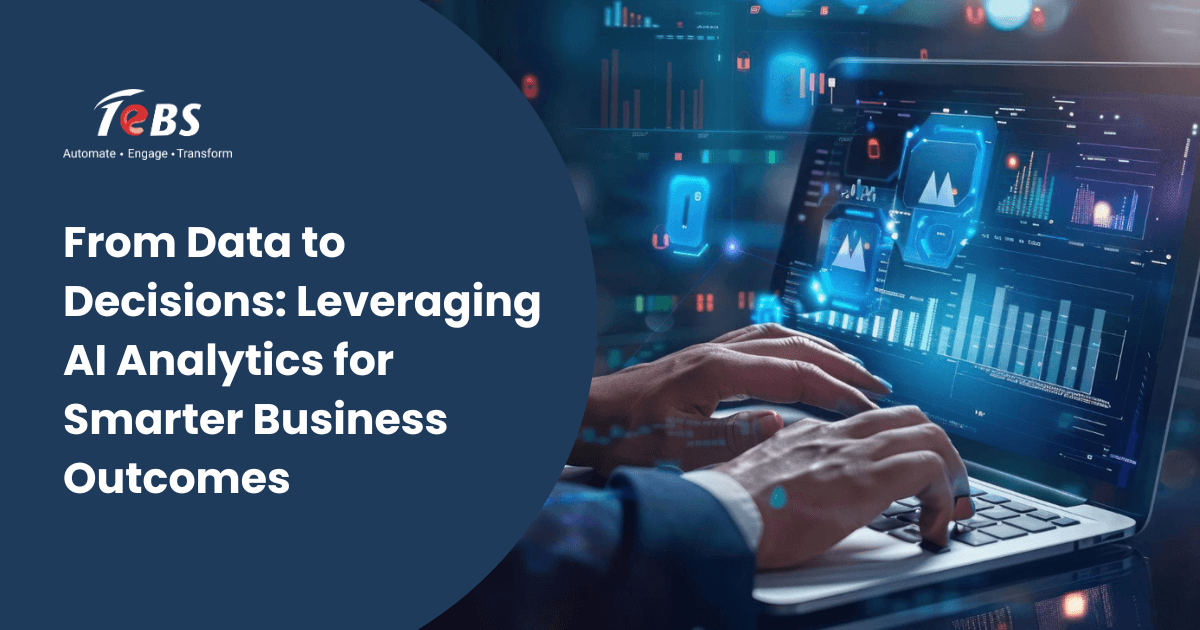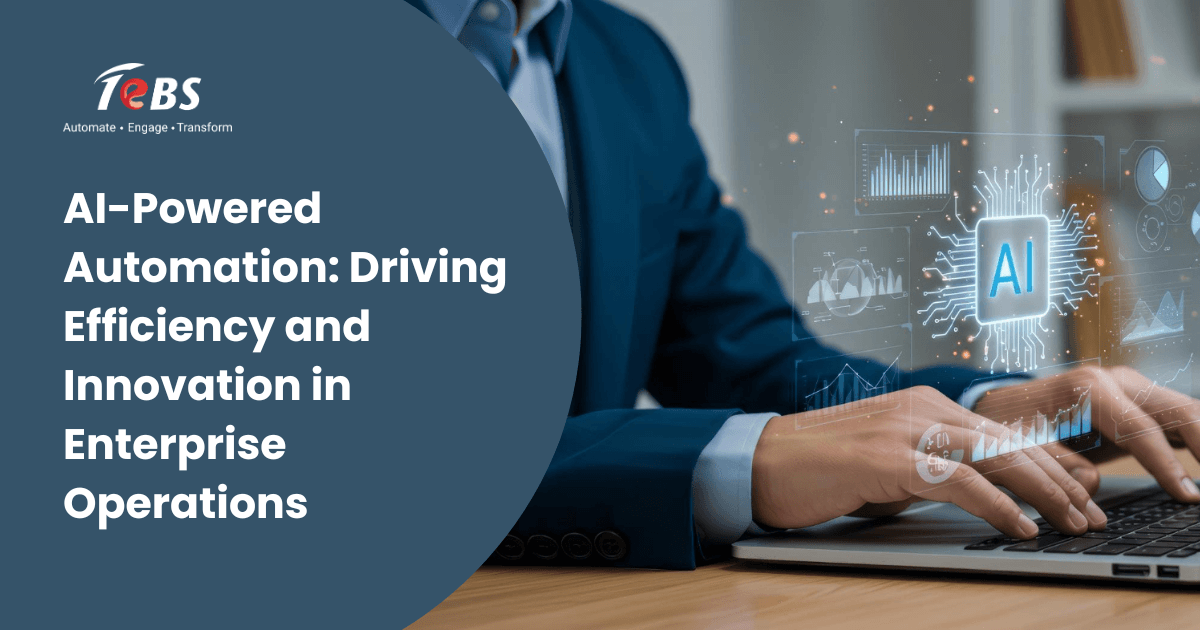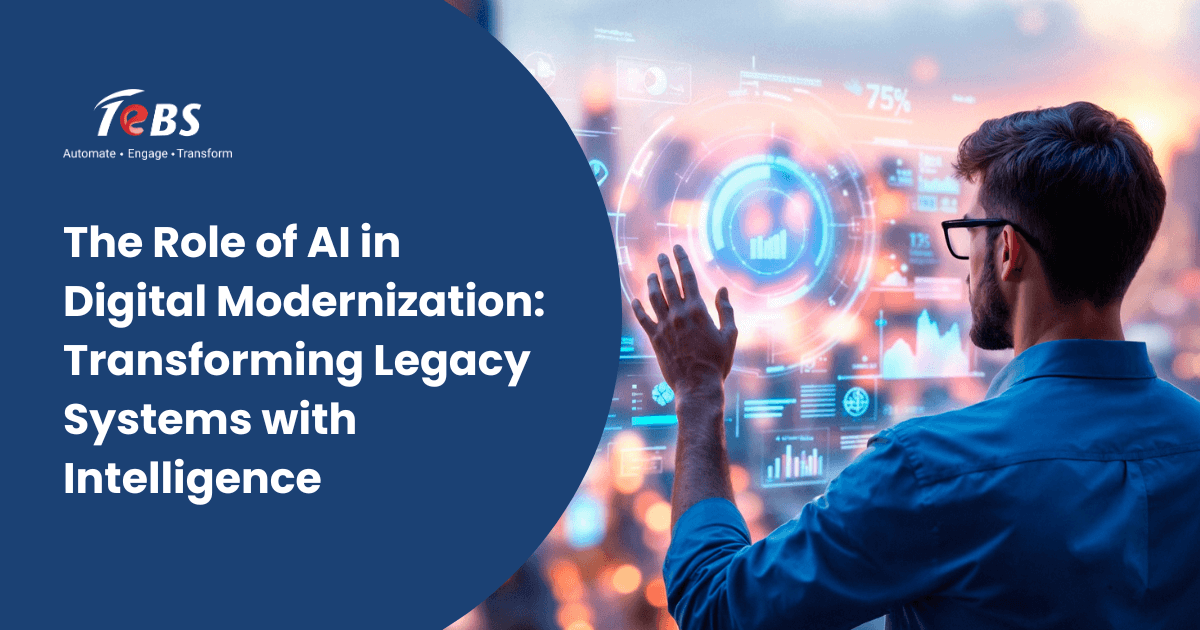Introduction to Global AI Interest
Artificial Intelligence has emerged as one of the most transformative technologies of the 21st century, capturing the interest of businesses, governments, and research institutions around the world. From automating repetitive tasks to enabling advanced analytics and decision-making, AI is no longer a futuristic concept but a driving force behind digital transformation. The rapid pace of AI adoption is being fueled by advancements in computing power, availability of massive datasets, and breakthroughs in machine learning algorithms.
This surge in global AI interest is not just revolutionizing industries like healthcare, finance, and manufacturing, but also significantly impacting how organizations handle and manage data. As AI systems rely heavily on vast amounts of accurate and well-structured information, the data management market has become a critical enabler of AI’s potential. The integration of AI Services with modern data management practices is creating unprecedented opportunities for innovation, efficiency, and competitive advantage.
Market Growth Drivers
The growing influence of AI in global markets is directly contributing to the rapid expansion of the data management sector. Several factors are driving this growth and reshaping the competitive landscape.1. Explosion of Data Volumes
With the rise of digital technologies, connected devices, and the Internet of Things (IoT), organizations are generating data at an unprecedented rate. AI systems require this data for training and analysis, making effective data management essential. Companies are now investing heavily in scalable data storage, processing, and governance solutions to meet the demands of AI-driven applications.2. Advancements in Cloud Computing
Cloud infrastructure has made it easier and more cost-effective for organizations to store and process large datasets. This has fueled AI adoption by enabling flexible, on-demand access to computing resources. Modern data management platforms are increasingly cloud-native, ensuring they can support AI workloads efficiently and securely.3. Need for Real-Time Insights
In industries like finance, e-commerce, and healthcare, real-time decision-making is a competitive necessity. AI models thrive on fresh and accurate data to generate actionable insights instantly. This demand for real-time analytics has pushed organizations to upgrade their data management capabilities to handle continuous streams of incoming information.4. Regulatory Compliance and Data Governance
As data privacy regulations such as GDPR, CCPA, and others become stricter, businesses must ensure their AI systems operate within legal and ethical boundaries. This has increased the demand for robust data governance frameworks that not only ensure compliance but also enhance data quality for AI applications.5. Competitive Differentiation Through AI
Companies recognize that leveraging AI automation effectively can lead to significant competitive advantages, from improved customer experiences to optimized operations. Strong data management capabilities are now seen as a strategic asset that enables AI models to deliver more accurate, relevant, and impactful results. Explore how AI document digitization for the future of records management brings enhanced security, compliance, and scalable storage to modern record-keeping practices.Impact on Data Management Practices
Global interest in AI is not only driving growth in the data management market but is also reshaping how organizations approach data strategy. Traditional data management models are being transformed to align with the requirements of AI-driven operations.1. AI-Enhanced Data Processing
Modern data management systems are integrating AI capabilities to automate data classification, tagging, and quality checks. This reduces the manual effort required to prepare data for analysis and ensures greater accuracy. AI can also identify patterns and anomalies in datasets, improving reliability and reducing risks. A great example is how TeBS helped enhance document processing efficiency with AI, resulting in improved data reliability and search accuracy2. Shift Toward Data-as-a-Service
As organizations embrace AI, many are adopting a Data-as-a-Service (DaaS) model to make high-quality, curated datasets available on demand across the enterprise. This ensures that AI teams have continuous access to the right data without unnecessary duplication or delays.3. Intelligent Data Integration
AI-powered tools are making it easier to integrate data from multiple sources, and AI Data Engineering solutions are streamlining these efforts at scale, whether structured or unstructured, internal or external. This is critical for building comprehensive datasets that fuel more robust AI models and deliver deeper business insights.4. Emphasis on Metadata and Contextualization
AI models require not just raw data but also contextual information to interpret it correctly. Metadata management has become a core focus in modern data strategies, helping AI systems understand the meaning, relationships, and quality of data points.5. Automated Data Governance
Manual data governance processes are often too slow to keep pace with AI demands. AI-powered governance solutions can automatically enforce compliance rules, monitor data usage, and maintain audit trails, ensuring that data is both reliable and compliant. Read how Total eBiz Solutions guides organizations to adapt proactively in the AI-powered future of work—helping teams balance human creativity with automated intelligenceFuture Implications for the Industry
The growing synergy between AI and data management will continue to shape the future of both industries. The coming years will bring several significant developments that will redefine market dynamics.1. Expansion of AI-Driven Data Platforms
Data management platforms will increasingly embed AI as a core component, enabling advanced capabilities like predictive data modeling, automated data quality improvement, and intelligent query optimization. These AI-driven platforms will empower organizations to extract greater value from their data assets.2. Rise of Self-Service Data Analytics
As AI tools become more user-friendly, non-technical employees will gain greater access to advanced analytics capabilities. Self-service analytics powered by AI will democratize data-driven decision-making, making data management systems essential to ensure data accuracy and accessibility.3. Enhanced Personalization in Business Applications
AI’s ability to analyze customer behavior in real time will drive hyper-personalized experiences across industries. This level of personalization will require sophisticated data management systems that can deliver precise, up-to-date information at scale.4. Greater Focus on Data Ethics and Transparency
As AI systems play a more prominent role in decision-making, businesses will face increasing scrutiny over how they collect, manage, and use data. Transparent data management practices will be critical for maintaining trust and meeting evolving regulatory requirements.5. Integration with Emerging Technologies
Data management will play a pivotal role in enabling AI to work alongside other advanced technologies such as blockchain, augmented reality, and quantum computing. These integrations will open new avenues for innovation and further accelerate market growth. According to Microsoft, AI integration in data management platforms is enabling smarter data classification, faster query processing, and advanced governance models.Conclusion on AI’s Role in Market Transformation
The global surge in AI interest is fueling rapid advancements in the data management market. As organizations strive to harness the full potential of AI, the need for robust, scalable, and intelligent data management solutions has never been greater. AI not only depends on high-quality data but also enhances the very processes used to manage it, creating a powerful cycle of innovation and value creation.
The future will see even deeper integration between AI and data management, leading to smarter platforms, faster insights, and greater competitive advantages for businesses that invest wisely in their data strategies. Organizations that align their data management capabilities with AI requirements will be best positioned to lead in the evolving digital economy.
Total eBiz Solutions (TeBS) helps businesses unlock the true potential of their data by delivering advanced AI-powered data management solutions. Our expertise ensures that your organization can leverage AI effectively while maintaining the highest standards of data quality, governance, and compliance.
To explore how our AI-enabled data management solutions can empower your business, contact us at [email protected].
Frequently asked questions
How is global AI interest driving growth in the data management market?
The surge in global AI adoption is increasing demand for scalable, intelligent data management solutions. As AI relies on high-quality, well-structured data, organizations are investing heavily in modern platforms that support AI workloads and real-time insights.
What are the key drivers behind AI’s impact on data management?
Key drivers include the explosion of data volumes, advancements in cloud computing, the need for real-time analytics, regulatory compliance requirements, and the pursuit of competitive differentiation through AI-powered insights.
How does AI improve modern data management practices?
AI enhances data management by automating processing tasks, improving data quality, enabling intelligent integration, supporting metadata-driven contextualization, and streamlining governance for compliance and reliability.
What future trends will shape AI-powered data management platforms?
Future trends include the rise of AI-driven data platforms, self-service analytics, hyper-personalization in business applications, stronger focus on ethics and transparency, and integration with emerging technologies like blockchain and quantum computing.
Why is data governance important for AI-driven data strategies?
Data governance ensures accuracy, compliance, and ethical use of information—critical for reliable AI models. Strong governance frameworks help organizations maintain trust, meet regulatory requirements, and maximize the value of AI-driven analytics.





